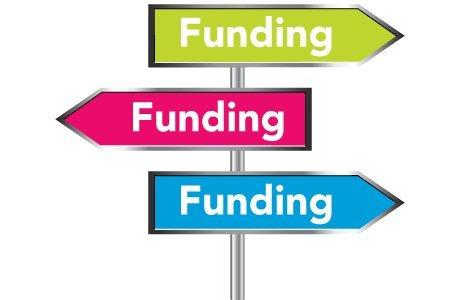Most groups will need to apply for grants. The kind of funders vary from charities and trusts to statutory bodies. The size of grant also varies – from a few pounds (£20 for a new kettle for a luncheon club) to a few million (a new entertainment centre).
How does a voluntary organisation or community group access these grants? There is no one magic formula to access grants, but most funders (grant making bodies) will require:
- a copy of your governing document
- a copy of the latest annual accounts or budget plans if you are a new group
- confirmation that group has a bank/building society account in name of the group with a requirement of at least 2 authorised signatories
- proof that the organisation is solvent
- proof that there is a need for the money, i.e. there is not a lot of money in the bank which are “free reserves”.
- Money that is: - “restricted” – given for a specific purpose,
- “designated” – put aside by you for such things as redundancy pay, running costs for a specific period or a building fund does not count as “free reserves”.
You need to decide what the group wants to do and investigate who might provide the finance rather than doing something just because there is money available. It is therefore necessary to decide quite early:
- what does the group want to do?
- why does the group want to do it?
- what will be the community benefits?
- who will benefit?
- where do they live? (Some funders have geographical limits).
- how is the group going to achieve it?
- how much money is the group likely to need?
- why does the group think there is a need?
- what evidence is there for the project?
- how does the group think it can meet that need?
- is there another organisation that is already doing it or is more appropriate?
- does the group have the capacity to manage the project including the monitoring, documentation and returns that the funder will require?
Some funders have minimum and/or maximum amounts that they will award. Do not over inflate your costs, you will be considered greedy, but equally do not leave the project short (have you included VAT, professional fees, delivery charges?). Is it capital (e.g. building, equipment), revenue (e.g. running costs, rent), one-off or continuing, if on-going how will you finance the project after the grant. You can now start to consider who might fund your project. It is as important to investigate what an organisation will not fund as it is to know what and who they will fund. Make sure you have the current guidelines – some funders’ priorities change annually.
ALWAYS READ THE GUIDANCE/GUIDELINES - Every year, charities waste thousands of hours completing and submitting ineligible funding proposals. To avoid wasting your time and energy on applications which stand no chance of success, always read the eligibility criteria of the grant-makers carefully. Then read them again.
If you are unsure whether your project meets the funder’s eligibility criteria, a quick phone call to double-check that yours is the type of project that the grant-maker would be interested in supporting, can save an enormous amount of time spent submitting applications which will not be accepted. Even if you are sure that your project will be eligible, a brief conversation with a representative of the grant-maker, may be useful to confirm that funding is still available or to provide insights into how you might tailor your application to maximise your chances of success.
To contact Links for free advice on this matter please complete the following questionnaire: Funding Questionnaire. This service is for groups operating in Chesterfield & North East Derbyshire only.

